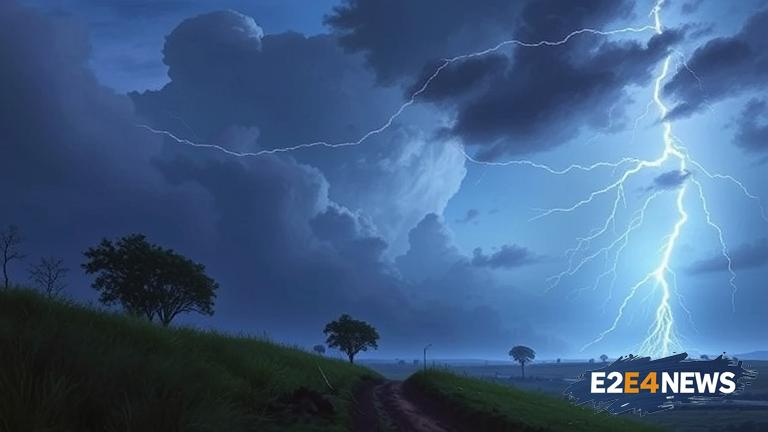In a heartbreaking turn of events, three women have lost their lives in separate lightning strikes in the Ganjam district of Odisha. The incidents occurred on a day when the region was experiencing severe weather conditions, with heavy rainfall and thunderstorms. The first incident took place in the morning, when a 35-year-old woman was struck by lightning while working in her field. Despite efforts to rush her to the hospital, she succumbed to her injuries. The second incident occurred just a few hours later, when a 28-year-old woman was killed by a lightning strike while walking home from a nearby market. The third and final incident took place in the evening, when a 40-year-old woman was struck by lightning while standing under a tree, seeking shelter from the rain. All three women were pronounced dead at the scene, and their bodies were later taken to the local hospital for post-mortem examination. The incidents have sent shockwaves through the community, with many expressing their condolences to the families of the deceased. The local authorities have announced compensation to the families of the victims and have urged people to take necessary precautions during severe weather conditions. The district administration has also issued a warning to people to stay indoors during thunderstorms and to avoid taking shelter under trees or in open fields. The incidents have highlighted the need for better weather forecasting and warning systems in the region, as well as the importance of public awareness campaigns to educate people on the dangers of lightning strikes. The state government has announced plans to install lightning arresters in vulnerable areas and to conduct awareness campaigns to educate people on how to stay safe during thunderstorms. The incidents have also raised concerns about the lack of infrastructure and emergency services in rural areas, where people are often forced to seek shelter in open fields or under trees during severe weather conditions. The local community has come together to support the families of the victims, with many donating money and supplies to help them cope with their loss. The incidents have also sparked a debate about the need for better disaster management and emergency response systems in the region. The state government has announced plans to review its disaster management policies and to take steps to improve its emergency response systems. The incidents have also highlighted the importance of community-based initiatives to educate people on disaster preparedness and response. The local authorities have announced plans to conduct regular drills and training sessions to educate people on how to respond to emergencies. The incidents have also raised concerns about the impact of climate change on weather patterns and the need for sustainable development practices to mitigate its effects. The state government has announced plans to promote sustainable development practices and to take steps to reduce its carbon footprint. The incidents have also sparked a discussion about the need for better insurance coverage for farmers and rural communities, who are often the most vulnerable to natural disasters. The state government has announced plans to review its insurance policies and to take steps to improve coverage for rural communities. The incidents have also highlighted the importance of community-based initiatives to support farmers and rural communities affected by natural disasters. The local authorities have announced plans to provide support to farmers and rural communities affected by the lightning strikes, including financial assistance and counseling services.





